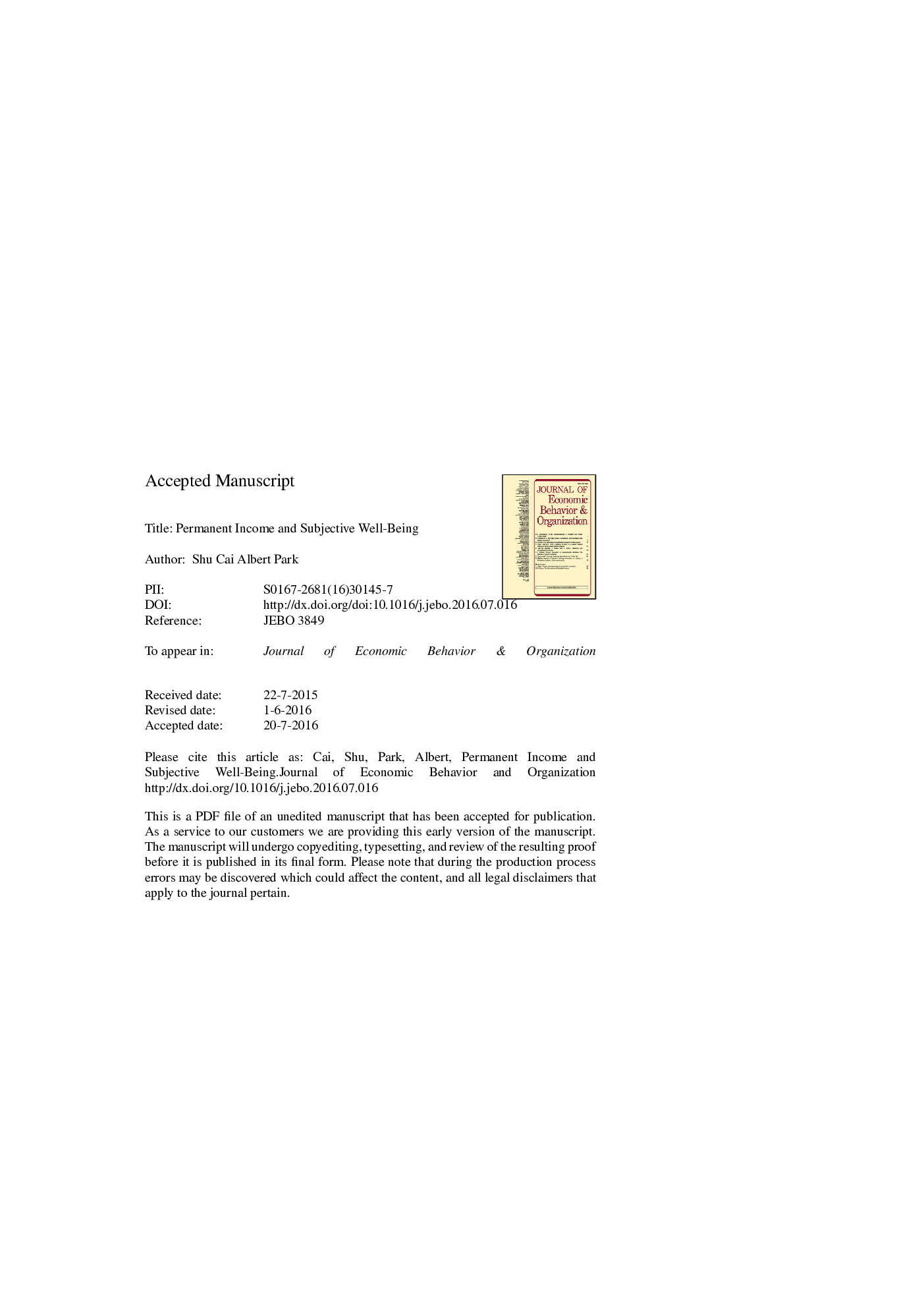| Article ID | Journal | Published Year | Pages | File Type |
|---|---|---|---|---|
| 7242760 | Journal of Economic Behavior & Organization | 2016 | 58 Pages |
Abstract
We provide a new explanation for the stronger relationship between income and subjective wellbeing (SWB) found in cross-sectional versus panel studies based on the predictions of a rational expectations model of utility maximization with permanent and transitory income shocks. The model predicts that SWB is affected by unanticipated rather than anticipated income shocks, and is more influenced by permanent rather than transitory income shocks. We confirm the model predictions empirically by analyzing panel data from China, and show that differences in the relative importance of permanent income can explain the stronger (weaker) impact of income often found in cross-sectional (panel) estimation. We also empirically confirm asymmetric impacts of positive and negative transitory income shocks as predicted by a model with credit constraints.
Related Topics
Social Sciences and Humanities
Economics, Econometrics and Finance
Economics and Econometrics
Authors
Shu Cai, Albert Park,
